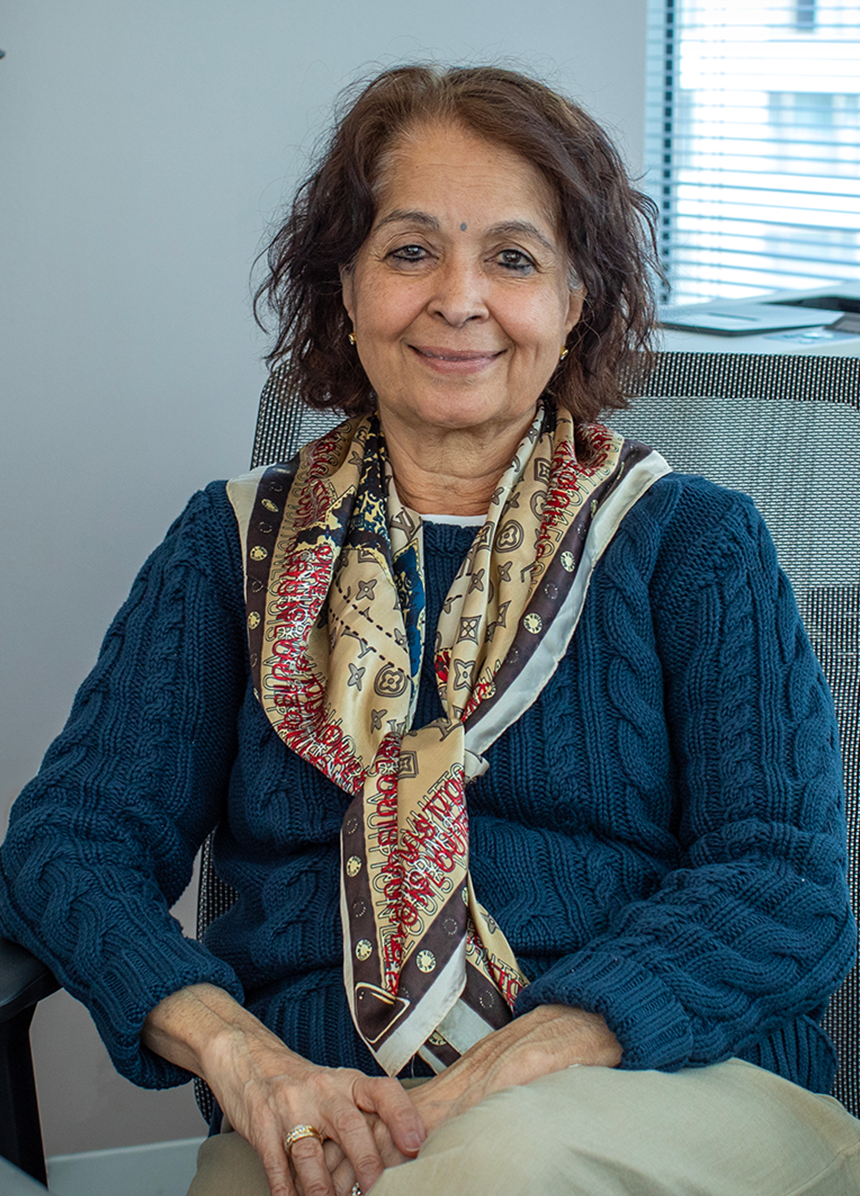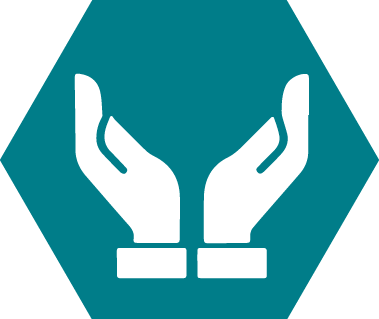Strategic and adaptable
Alumni Close-Up: Radha Sekar, MBA ’86
By Kevin Manne

Photo: Shaun Curtis
When Radha Sekar graduated with an MBA from the School of Management in 1986, her sights were set on the corporate world — and Wall Street was her goal.
She began her career at Bell Aerospace in Niagara Falls, New York, but the company was soon sold to industrial conglomerate Textron. Following the sale, she joined Electronic Data Systems where she supported a wide range of initiatives, from guiding the company’s financial transformation after it was acquired by General Motors, to establishing a marine protection agency following the Exxon Valdez oil spill.
“I had the luxury of working with senior leadership at GM, and that’s where I got a taste of really solving bigger issues and working with Fortune 100 companies,” says Sekar.
From there her career path progressed to becoming a partner at Coopers & Lybrand and an executive at IBM, where she worked with government agencies to improve processes.
“My success was totally tied to my clients, primarily the U.S. Department of Defense,” says Sekar. “I worked with them on supply chain logistics, both in wartime and peacetime. Then 9/11 happened, and my military colleagues convinced me to serve the country.”
That’s when her career shifted from corporate to government, and she joined the DOD as a senior advisor and assistant to the Under Secretary of Defense (Comptroller), followed by executive financial roles in U.S. Immigration and Customs Enforcement (ICE) and the U.S. Department of Agriculture.
“Working for these government agencies was really eye opening,” she says. “Immigration is a political hot potato, but it is not what you read in the paper. I had to be inside ICE to understand the issues and what was really going on — the human side of it.”
Today, Sekar is CEO of the Universal Service Administrative Company, which delivers telecommunications programs to underserved and rural U.S. populations. She’s also treasurer and chair of the finance committee for Relief International, a nonprofit that partners with communities impacted by conflict, climate change and disaster to save lives, build greater resilience and promote long-term health and well-being.
So, while her career path diverged from her original visions of Wall Street, Sekar takes pride in having used her skills to help secure her country and improve the world.
“When the opportunity presented itself to work shoulder to shoulder with my military colleagues, I grabbed it because I was passionate about the mission,” she says. “But in my sunset years, I wanted to be associated with a nonprofit. People talk about nonprofits as great places to work, but it’s really about how my contributions make me feel inside — it’s humbling and gives you perspective.”
One thing Sekar learned during her UB MBA experience that she continues to use, is that no matter the industry, it’s all about having a strategy.
“In strategic planning, I learned that you can’t go straight to changing operations. You have to have a vision, a goal and objectives, and then you can set the building blocks,” she says.
However, Sekar says adaptability is key when it comes to developing a career path.
“Keep an open mind, because it may not be a straight line,” she says. “Every job and every encounter are opportunities. There is nothing better than putting your best foot forward and giving it all you have.”



